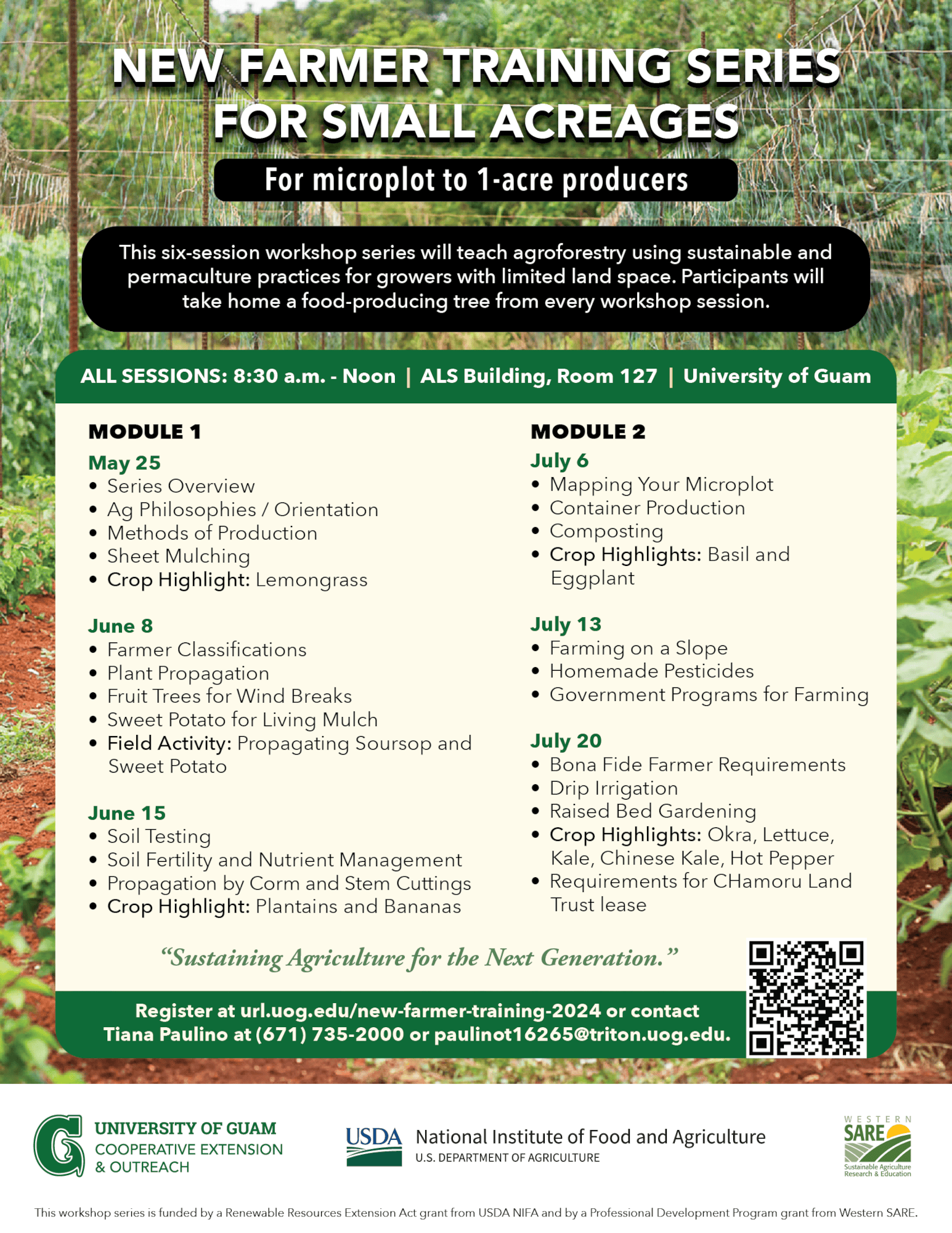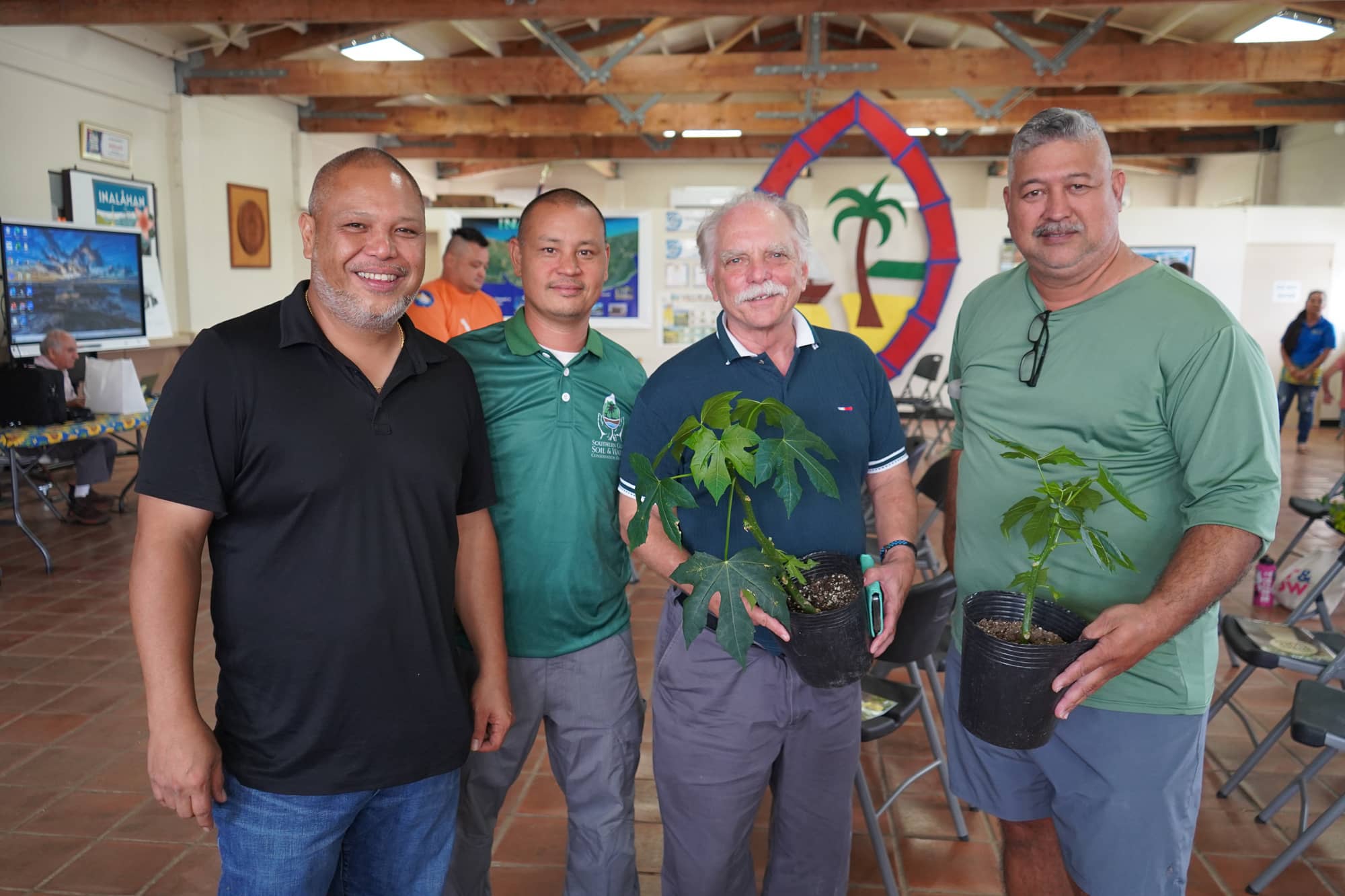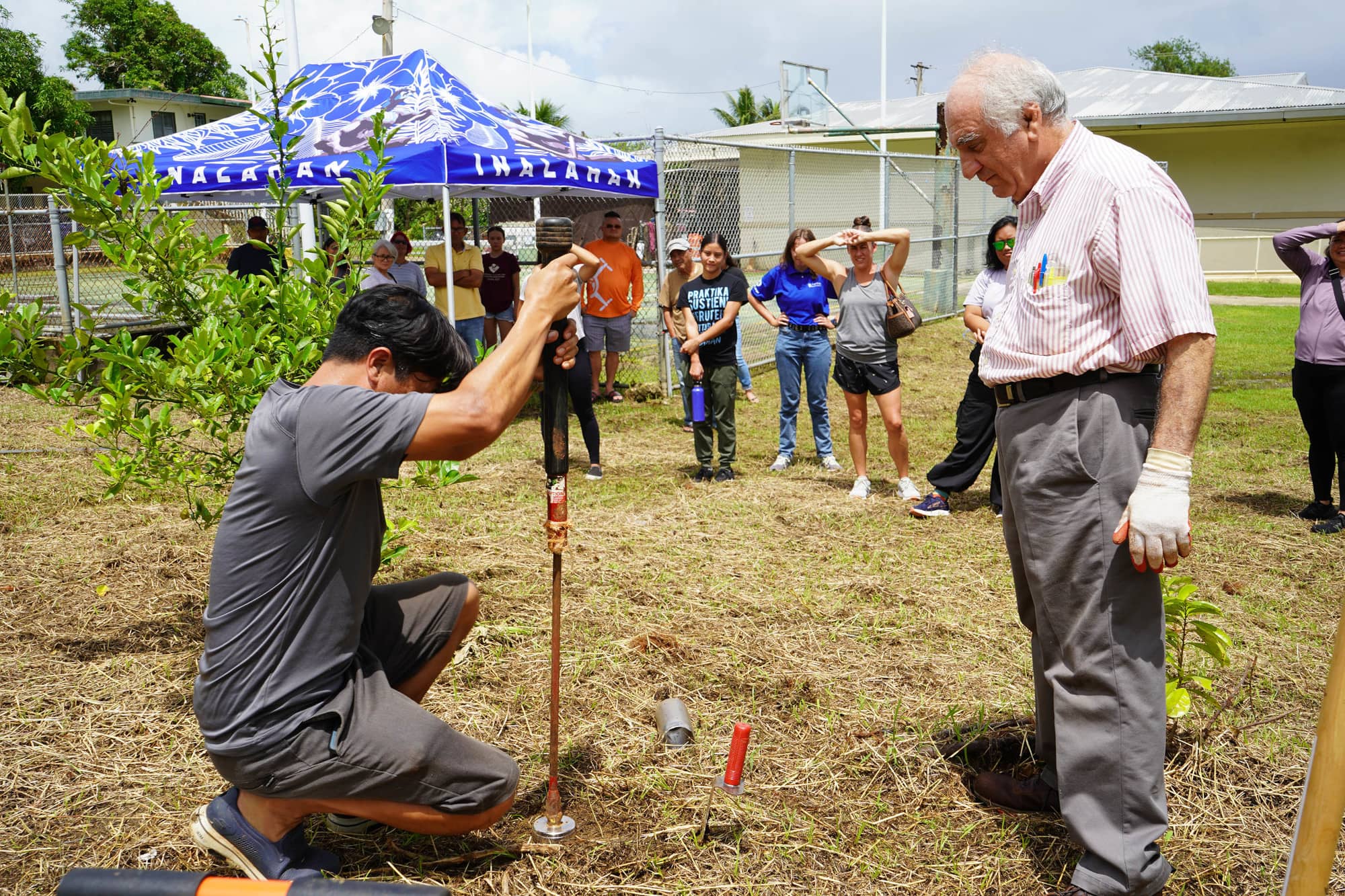Small-acreage farming workshop series to begin May 25 at UOG
Small-acreage farming workshop series to begin May 25 at UOG
Small-acreage farming workshop series to begin May 25 at UOG
5/16/2024
New farmers with small acreages are invited to a free six-session workshop series being offered by the University of Guam’s Land Grant extension agents. The workshops will teach agroforestry — the simultaneous cultivation of crops and trees — using sustainable practices for growers with limited space of up to 1 acre.
The workshops will take place from 8:30 a.m. to noon on six Saturdays, starting on May 25. Each workshop will include a classroom portion, a field activity, and a special crop highlight. After each session, participants will take home several handouts and publications as well as a food-producing tree that they can plant.
 |
| Download flyer |
The schedule and topics are as follows:
Saturday, May 25
Topics: Agriculture philosophies, methods of production, sheet mulching
Crop Highlight: Lemongrass
Saturday, June 8
Topics: Farmer classifications, plant propagation techniques, fruit trees for windbreaks
Crop Highlights: Soursop and sweet potato
Saturday, June 15
Topics: Soil testing, soil fertility and nutrient management, propagation by corm
and stem cuttings
Crop Highlights: Plantains and bananas
Saturday, July 6
Topics: Mapping your microplot, container production, composting
Crop Highlights: Basil and eggplant
Saturday, July 13
Topics: Farming on a slope, vegetative barriers and hedgerows, less toxic homemade
pesticides, government programs for farming
Crop Highlight: Pigeon peas
Saturday, July 20
Topics: Requirements to become a bona fide farmer, requirements for CHamoru Land Trust
leases, drip irrigation, raised bed gardening
Crop Highlights: Okra, lettuce, kale, Chinese kale, hot peppers
Registration
Registration is on first-come, first-served basis up to 50 people per session. Registrants are encouraged to sign up for all six, although they can choose individual workshops as well.
For more information or assistance registering, contact Tiana Paulino at (671) 735-2000 or paulinot16265@triton.uog.edu.
The workshop series is funded by a Renewable Resources Extension Act grant from the U.S. Department of Agriculture and a Professional Development Program grant from Western Sustainable Agriculture Research & Education.


